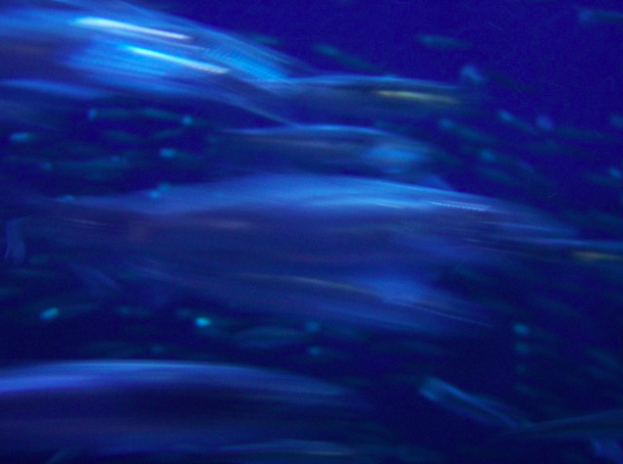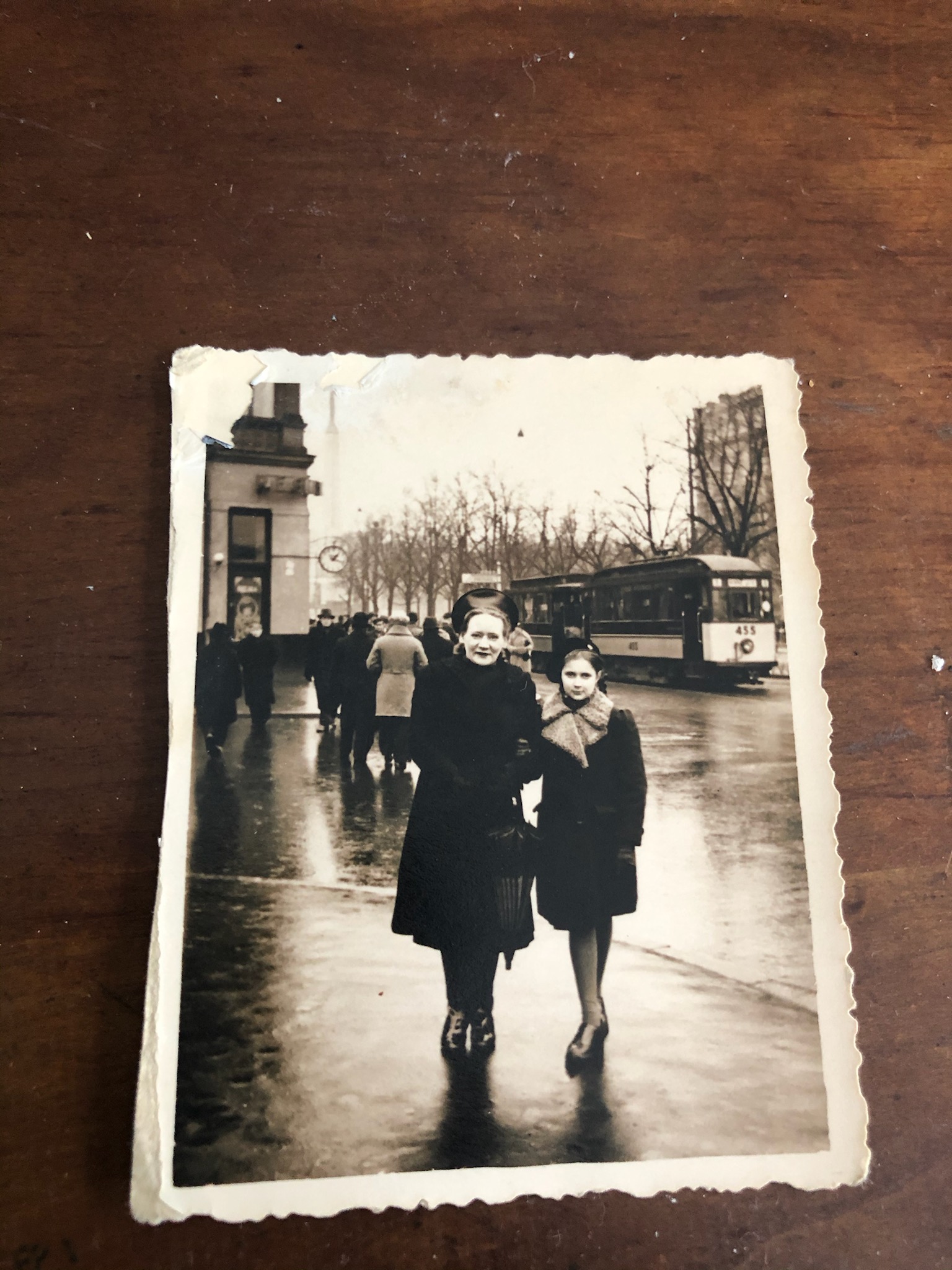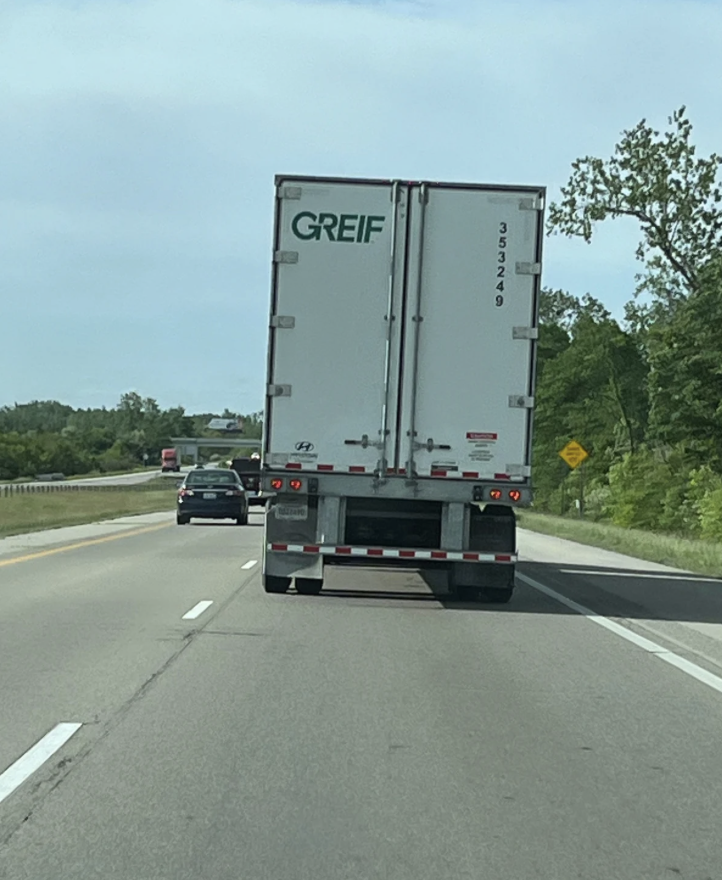My grandfather, Luis A. Ferré (1904-2003), was the third governor of Puerto Rico and the founder of the Pro-Statehood Party. When I was little, he used to say it is better to be a big fish in a little pond than a sardine in the big blue sea. It was a reminder of how good we had it on our little island, and a warning against leaving it in pursuit of a bigger and impossible dream. You could say that my grandfather believed in statehood because he was a practical man. He warned us that power, authority, and success came from appreciating the benefits of living in a small pond. But you could also say that my grandfather believed in statehood because he was a fearful man. He warned us that ideas like independence were as scary as the Puerto Rico Trench, the deepest part of the Atlantic Ocean. You could be swimming merrily along, thinking yourself a big fish, and suddenly a shark would come out of the deep and eat you alive. If you were not careful, big ideas could turn you into small fry without any warning.
Extra baggage
My mother (the writer Rosario Ferré, 1939-2016) liked big ideas. She became financially independent when my grandmother passed away and left her a small fortune in 1970. Like other big fish in the little pond of Puerto Rico, she was wealthy but unhappy in a traditional marriage that forced her to play the role of conventional wife and mother. She dreamed of becoming something more. So, to my grandfather’s surprise, she separated from my father and struck out on her own. She began to write fiction. Dark but also funny horror stories like “The Youngest Doll,” a revenge fantasy about a wife who escapes the grip of her husband by substituting dolls that look like her. In the end, monsters come out of the last doll’s eyes and eat the husband alive. My mother also came out publicly in support of independence for Puerto Rico, and wrote against statehood during her father’s campaign for a second term as governor in 1972. He lost the election.
We lived for my entire childhood in a two-story house in San Juan with a huge yard and a mango tree in the middle, a tree I considered my personal property. The house had been a wedding gift from my grandfather to my mother. Despite the loss of my father’s income after the divorce, my mother could afford to keep the house and maintain the yard, pay for a master’s degree in literature for herself and school for her three children. She was a big fish. But then, she got smaller.
They say in Puerto Rico that when the US has a cold, the island gets the Spanish Flu. The Oil Crisis of 1974 left the economy in ruins with significant repercussions for my mother. Similar to the current debt crisis, stocks and bonds stopped paying interest and dividends. She had been all-in with the family business: cement. Almost overnight, the company came to a grinding halt and so did her only source of income.
I am sure the irony of the situation did not escape her. The independence she fought so hard to achieve in fact depended on Puerto Rico’s link to the US economy. Perhaps this crisis played a part in her change of heart many years later, when she published an opinion piece in the New York Times titled “Puerto Rico, USA.” In it, she tried to stake out her own political ground. She wrote, “When I travel to the States, I feel as Latina as Chita Rivera. But in Latin America, I feel more American than John Wayne.” The piece was widely read on the island where it did not endear her to the mostly pro-independence Puerto Rican intellectual class. She became a pariah. But for me, it confirmed my mother’s fearless spirit. Like the Duke, my mother had true grit.
So, even at twelve years of age, it was no surprise to me that when confronted with the nation-wide economic crisis, and with the “told-you-so” rejection of her family, my mother had a dramatic but simple solution. She turned off the central air conditioning system in the house, installed fans in the bedrooms, and sold half of the property—“our half”, the yard with the mango tree—in order to save on electric bills, property taxes and maintenance. If you are from Puerto Rico, you love two things dearly: you love your sweet fresh mangoes but you really love your air conditioning, and we lost both at the same time. Our pond was drying up.
The economic situation took a long time to improve. During my high school years, my mother became an expert at pressuring her three children into service in order to help with the expenses. We did her bidding with a sense of shame, but she was, after all, our mother and we depended on her for everything. We had already lost our air conditioning and our yard, and we were afraid to lose her, too. So, during our biweekly visits with our father, we begged him for more than the alimony he was paying. And every time, he refused. For two years, my parents bitterly fought the case for our custody. My father lost the fight, and it cost him a pretty penny in attorney’s fees. His pond also shrank.
I became a slacker in high school. My favorite form of entertainment was smoking in the parking lot with my dead-head friends while listening to rock and salsa, and my grades tanked. The parking lot was my only extracurricular activity and I could not put it on my college application. My mother sent me to her brother, a big fish, to plead for help. He was a graduate of Amherst College and she thought that a letter or a call from him to the Alumni Office would get me in. Filled with shame, I went to his house, told him I was applying to Amherst, and asked him if he could help me. He said that he would think about it, and that I should return one week later. I did so, red in the face. He opened the door and let me in. He said, “I’ve decided to help you with college,” and with a smile gave me a “portable” typewriter. It was a Coronamatic 2200 in a brown hard plastic case and it weighed in at twenty-five pounds. With five children of his own getting ready to go to college, my uncle was justifiably afraid of squandering whatever influence he had on his unpromising nephew.
My mother must have found the typewriter to be either a symbol for her brother’s insufficient support of her and her family, or an ironic commentary on the effects of her decision to become a professional writer. Either way, she was mad as hell at her brother and her anger gave her the gumption to get on a plane with me and go to Amherst in person. She got me an interview with the Dean of Admissions and, one month later, I got a letter in the mail saying that I got in. I saw a chance to escape the dark comedy that our life had become. My mother was like Lily Tomlin in The Incredibly Shrinking Woman. I imagined that Amherst was a ticket to success on the mainland, so I took off for college still thinking I was a big fish. Like my mother before me, I left a small pond confident in my ability to make it on my own. And like her, I found out that it was more complicated than I had imagined. I still carry my uncle’s typewriter as an anchor that reminds me of the heavy cost of dreaming big and becoming a sardine in the big blue sea.
A Different Animal
In the summer of 1983, three years after I arrived at Amherst, the college’s board of trustees made national news when it abolished the on-campus fraternity system, acting independently of what I remember as stiff opposition from students, national Greek organizations, and alumni. Worried about hazing and the exclusion of women and minorities, the president of the college argued that the influence of fraternities on the social life of students on campus was simply too great. By replacing fraternities with a campus center that tried to foster a supportive and diverse community, the college adapted to the changing demographics of the student population and to the changing sensibilities of the culture-at-large. Thirty-four years later, in 2014, Amherst reinforced that decision and made news again when it extended the ban to off-campus fraternities. The news brought back memories, and it reminded me of the independence and the ability to adapt that I had learned from my mother, which had led me to Amherst in the first place.
As a member of the unofficial high school parking lot club, as a student in an all-male Jesuit elite school, and as the oldest son of a prominent family in Puerto Rico, you could say that I was practically born into the fraternity system. But, because Puerto Rico was a little pond, the fraternity I was born into did not have any chapters on the mainland, and I had no idea how to join one.
I knew it was not my grades or my charming personality that got me into Amherst. I fooled myself into thinking that my status as a big fish got me in, but this misplaced sense of superiority was a defense mechanism. Even then, I suspected that I was small fry in the US and that affirmative action policies got me a place at the table. I was a Puerto Rican with benefits: my mother could afford to pay for my tuition. Again, to my shame, she insisted that I ask for financial aid in my application. She was afraid that the island would take another hit, and her family would suffer another loss, which would lose me my place at Amherst. I did her bidding but the request was denied. The message was clear. I was allowed into the club, but my mother had to pay full price for the privilege of allowing me to swim with the big fish at Amherst.
Once there, I found I was drowning. I was not prepared for the difficulty of the classes. My professors told me I was not Amherst material. My best friend was rushing fraternities and I considered rushing with him, but I felt so ashamed at the possibility of being rejected that I jumped ship. I feared that the rejection would merely confirm that I had become my grandfather’s sardine. As if on cue, I was invited to join the “loser’s” fraternity, and I refused. I kicked hard and tried to come up for air.
What I found, when I looked around, were student organizations. I did not find one large Hispanic Student Association but two Puerto Rican Student Associations that promised either empowerment or fun but not both. The first was called “La Causa.” The name suggested political action. It was a place where Puerto Rican students, mainly from state-side and mostly from New York, gathered to plan events around issues related to migration, socio-economic disparity, prejudice, and the political independence of the island. I do not remember the name of the second organization, but it might as well have been “La Fiesta.” It was an organization where Puerto Rican students, mainly from the island and mostly from San Juan and Ponce, gathered to plan parties, play disco and salsa music, and drink Bacardi rum. Politics were strictly verboten. The funny thing was that there were very few Puerto Rican students in my class. Not counting myself, there were six other Puerto Ricans: three from the island and three from NYC. I liked both empowerment and fun, so I steered clear of both “La Causa” and “La Fiesta.” Instead, willing myself to be like my mother, I became hopeful of the promise of independence. I had inherited her obstinate perseverance, and for the second time, I tried to strike out on my own.
Rats!
In college, I steered clear not only of “La Causa” and of “La Fiesta,” but also of courses having to do with mathematics or with the sciences, subjects for which I was woefully unprepared. I took advantage of the flexibility of the college’s curriculum. My familiarity with literature and the humanities compensated for my inadequacies in other subjects. This allowed me to graduate Magna Cum Laude with a BA in English and a thesis on Marxist Literary Criticism. My choice of topic revealed the enormity of my innocence about my origins and my place in life, but also confirmed my commitment to thinking independently, even if it meant burning my family bridges.
My mother had struck out against her father’s pro-statehood political ideals and also divorced my father. At the time, she was a firm believer in socialism and political independence for the island, while he was an ROTC officer and a firm believer in laissez faire capitalism and the American way of life. I was my mother’s son, so the year before going to Amherst, I had pleaded with my father not to pressure me into joining his import-export family business. In my mind, a thesis on Marxist Literary Criticism was a bulwark against his world and his plans for my future. He was indeed upset with me and my choices, but he let me go.
I decided to leave the pond for good and become a university professor on the mainland. I applied to several comparative literature graduate programs but my GREs were too low. I was rejected by all but one program. I was a sardine once more, being eaten alive. I swallowed my pride, accepted UT Austin’s generous offer, attended classes, and took GRE prep courses on the side. My efforts paid off and the next year I got into what I considered a better program. I joined the Spanish Department at Yale with a full scholarship and a graduate student salary. I was surprised by what I found there.
At Yale, I lived on the third floor of a walk-up tower called HGS (Hall of Graduate Studies). It was a dilapidated gothic-style building erected in the thirties and left to rot. Graduate students lived like ship rats, highly adaptable stowaways, well suited for the difficult journey in a sinking galleon made of brick. Like our ancestors, we joined the conquistadors and colonized our new world, running all over the place with our growing numbers and nasty habits, smoking, partying, and procrastinating. I imagined myself a half-cute Rattus rattus, a rata marina, at home in the galley of the HGS Revenge. My scholarship gave me some financial independence and I was able to take care of myself. I thought I was finally coming into my own, and then I met my match.
One night, I got up to pee in the middle of the night. I opened the door to the dank, dark hallway that led to the bathroom. I heard and thought I saw a large shadow close to the floor scurry away from me and cower in the far corner of the corridor. I turned on the flashlight that I carried to get to the bathroom unscathed, and pointed the beam at the creature. An enormous rat was facing me. His eyes were red like the devil’s, his coat was mangy, his snout was long, and his tail was like a narrow pink parsnip. A fugitive rat from some nuclear experiment, I thought. It was “Ben,” the rat movie star on nuclear steroids.
I panicked. I looked around for some protection. There was a red phone on the wall. I picked up the receiver and a police woman calmly answered. “Please describe the nature of the emergency.” I screamed, “There’s a rabid huge rat in the hallway of the third floor of HGS!” Seconds later an intimidating police officer was climbing the stairs quick as lightning, searching for the threat, a bloodthirsty buccaneer ready to fight the Spanish Armada. When he got to my floor, he saw the rat and then turned the light on me with contempt. He took a fire extinguisher from the wall and chased the poor frightened creature down the stairs. I followed him.
— It’s only a ’possum, haven’t you ever seen a ’possum before?” He was upset with me.
— No officer, I never saw such a thing.
— How did they let you into Yale?
— You see, I’m from Puerto Rico, and we don’t have…
He put up his hands and turned his back on me, swearing as he walked away.
— It’s three o’clock in the morning, for heaven’s sake! And here I am protecting a clueless Puerto Rican from a scared ’possum. How did I get here?
The same question was running through my mind. I was a long way from my small pond, from my incredibly shrinking home, and from my grandfather’s sayings. And yet, I managed to finish graduate school and apply for jobs on the mainland like I wanted. So perhaps the real question is not how did I arrive in HGS, but how did I overcome my grandfather’s fear of independence? Perhaps by following the lessons my mother taught me. Her sense of humor still helps me, even when I am hanging upside down. Her storytelling gets me through the night. And her grit gives me the determination to continue to breathe when I’m running out of air. But most important of all, the memory of her fierce determination to go her own way gives me hope as I continue to live my life as a fish out of water.
Benigno Trigo was born and raised in Puerto Rico. He earned a Bachelor’s Degree in 1984 from Amherst College and a PhD in Spanish from Yale University in 1992. He lives in the mainland United States since 1980. He currently serves as Acting Chair of the Department of Spanish and Portuguese at Vanderbilt University. His publications include Malady and Genius; Self-Sacrifice in Puerto Rican Literature (2016), Remembering Maternal Bodies (2006), Subjects of Crisis: (2000), Noir Anxiety (Co-authored with Kelly Oliver 2003), as well as two edited collections: Kristeva’s Fiction (2014) and Foucault and Latin America (2002). He has served his community as a member of the board of directors of the Luis A Ferré Foundation and of the Ponce Museum of Art. He also sat on the education council of the Frist Center for the Visual Arts.




